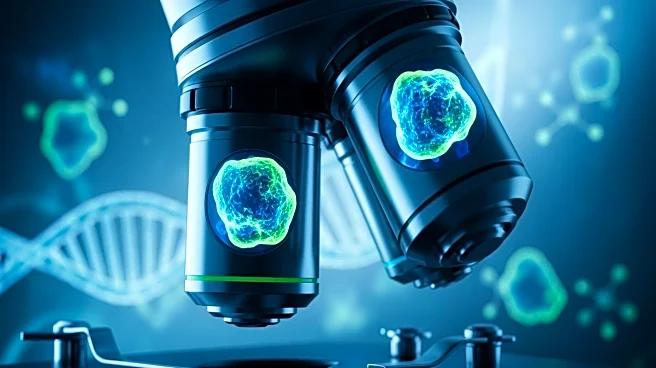What's Happening?
Recent research has identified the brain-to-liver glucose ratio (B2LR) as a significant predictor of outcomes in patients undergoing CAR-T therapy for non-Hodgkin lymphoma (NHL). The study, involving 157
patients, found that a B2LR of less than or equal to 2.5 is associated with a higher risk of early disease progression and poorer overall survival. This ratio, determined through PET/CT imaging, provides insights into the metabolic activity of tumors and can help identify patients less likely to benefit from CAR-T therapy. The findings suggest that B2LR could be used as a simple prognostic tool, independent of other established risk factors, to guide treatment decisions and improve patient outcomes.
Why It's Important?
The identification of B2LR as a predictive biomarker is crucial for optimizing CAR-T therapy, which is a costly and complex treatment option. By using B2LR to stratify patients, healthcare providers can better allocate resources and tailor treatment plans, potentially improving survival rates and reducing unnecessary interventions. This advancement in predictive medicine could lead to more personalized and effective cancer treatments, ultimately enhancing the quality of care for patients with NHL. Additionally, the study's findings may influence future research and development in the field of oncology, encouraging the exploration of similar biomarkers for other types of cancer.
What's Next?
The study suggests further research into the application of B2LR in clinical settings, potentially leading to its integration into standard pre-treatment assessments for CAR-T therapy. Healthcare providers may begin to adopt this biomarker as part of routine evaluations to better predict patient outcomes and refine treatment strategies. Additionally, the findings could prompt investigations into other metabolic markers that may serve as prognostic tools in cancer therapy, expanding the scope of personalized medicine in oncology.










